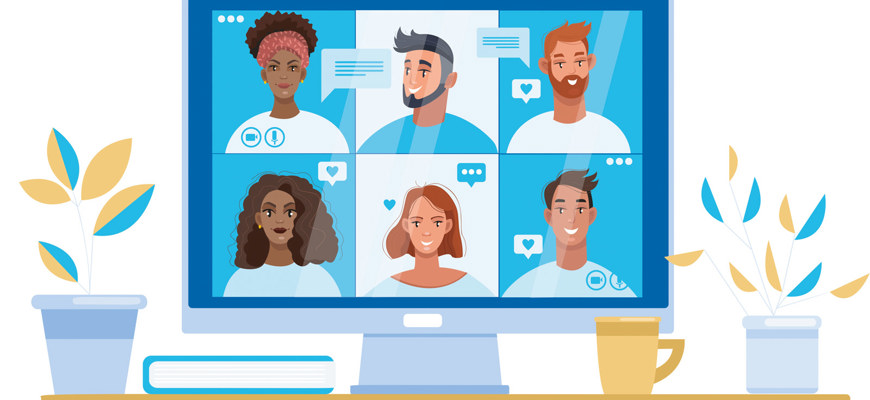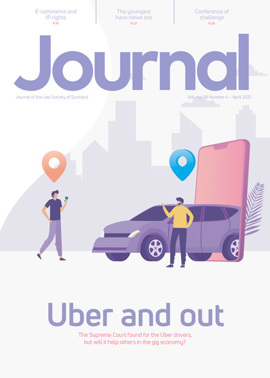The Word of Gold: Only connect

Two very different approaches to working life post-COVID emerged last month, from opposite ends of the banking sector.
David Solomon, the CEO of investment bank Goldman Sachs, has decreed that as soon as it’s safe, everyone must return to the office and work there full time. Working from home, he says, is an “aberration”. The firm, described affectionately by Rolling Stone as “a great vampire squid wrapped around the face of humanity”, acknowledged in March that some of its young analysts may be “quite stretched”, after a group of them revolted against being forced to work a 98-hour week. It seems that its offices are modelled on Hotel California: you can check out any time you want, but you can never leave.
Meantime, down the M4, comes news from Swindon. Nationwide Building Society has just announced that from now on everyone except branch staff can work from wherever they want in the UK. Chief executive Joe Garner said: “The last year has taught many of us that how we do our jobs is much more important than where we do them. We have listened and learned, and we are now deciding to move forward, not back. We are putting our employees in control of where they work.” Earlier this month, Andrew Bailey, the governor of the Bank of England, said office working will never return to pre-pandemic patterns. But these two behemoths look like outliers. The consensus seems to be settling around a hybrid model, in which we split our time more or less equally between home and office.
Enormous attention has been paid to the changes in how work is done, but less to what COVID means for how we go about winning it. Does the fact that we can’t meet and mingle mean that business development has to grind to a halt? Not at all. Strategically savvy firms have poured most of their rainmaking efforts into reinforcing their existing relationships. Clients forced to work from home, and grappling with unique adversity, have generally been more receptive to talking frankly about their business and private challenges. It’s been a time above all for thoughtful, sensitive engagement. Lawyers who have made the effort to ditch the loudhailer, understand their clients’ needs, show empathy, and be as easy as possible to deal with, will be rewarded with trust, loyalty and the lion’s share of work in the years ahead.
Just checking in
We have always been cautious about crossing the line between business and personal, and that concern is still there, but COVID has changed the dynamic. This past year, we have been constantly exhorted to “check in” with our loved ones and friends, to make sure they are OK. It’s the right thing to do with clients too.
I do not mean by this the Niagara of gag-inducing “we’re here for you” messages, which businesses of all kinds spewed out in the first days of lockdown. But taking a sincere interest in how our clients are coping will pay many dividends. It is a constant criticism of lawyers that they show little sign of wishing to engage with clients if there is no immediate prospect of a fee. This has always been stupid and shortsighted. Now, it will be much less tolerated. “What we did in the war” will permanently colour clients’ views of us, for good or ill.
Jean-Paul Sartre observed that “Hell is other people”, but he didn’t have to endure the last year. There is a massive pent-up desire to socialise again. Even now, we should be talking to clients about meeting face-to-face, as soon as it’s safe and legal. It will be a time for rejuvenating relationships, and forging new ones, as the “animal spirits” of business stir once again. The most enjoyable and productive meetings will be small scale. There will be few large networking events, but even fewer will mourn them. They have always been hit-and-miss, and often depressing, as anyone who has ever been forced to drink cava at room temperature will testify.
Once released, we will have the luxury of moving freely between the best of the real and online worlds. British Airways used to proclaim, “You can’t shake phones on a deal”, when promoting transatlantic business travel. That now seems prehistoric. There will be many times still when nothing beats being in the room. But the internet, combined with advanced, affordable video technology, has transformed our ability to market ourselves differently to a bigger, more diverse, yet precisely targeted audience. Never before have we had so many enticing possibilities. It is one of the vanishingly few benefits of this pandemic that they have arrived a decade early.
Perspectives
Features
Briefings
- Criminal court: Of dockets, and much more
- Licensing: A justiciable freedom?
- Planning: Development at pace
- Insolvency: Solicitor debts: sue the judicial factor?
- Tax: Budget briefing
- Immigration: When human rights meet national security
- Scottish Solicitors' Discipline Tribunal
- When the “twa kingdoms” collide
- In-house: People-centred, remotely






